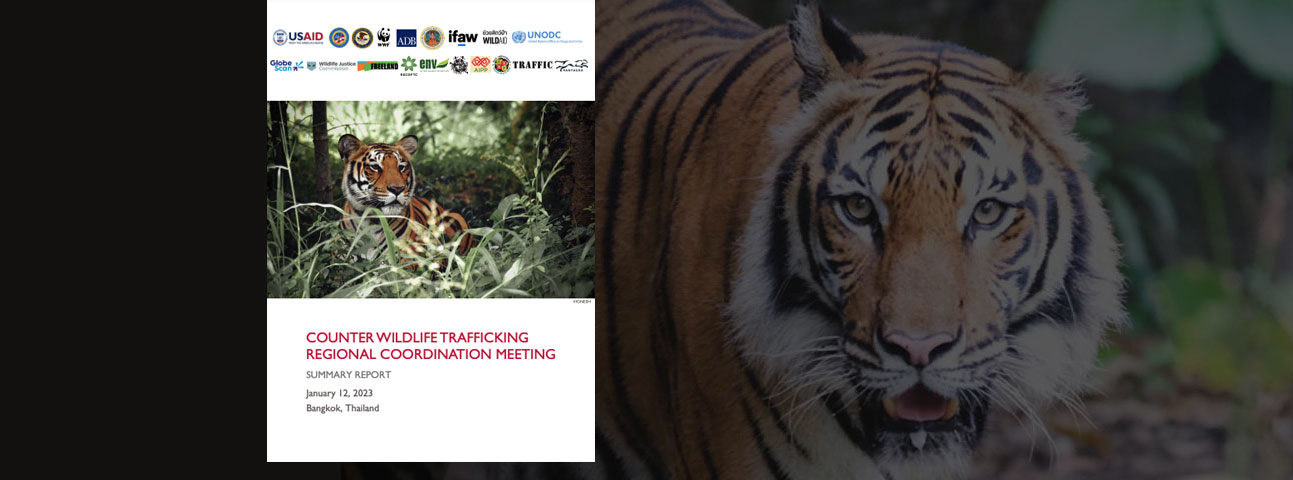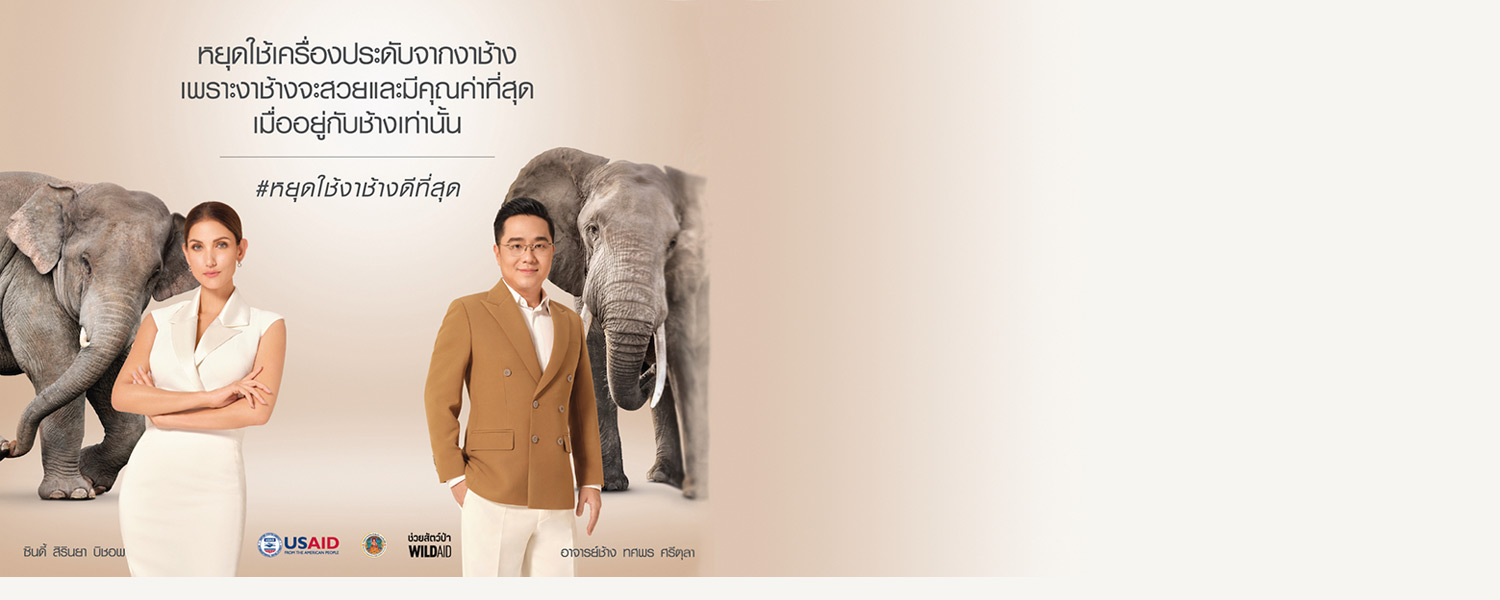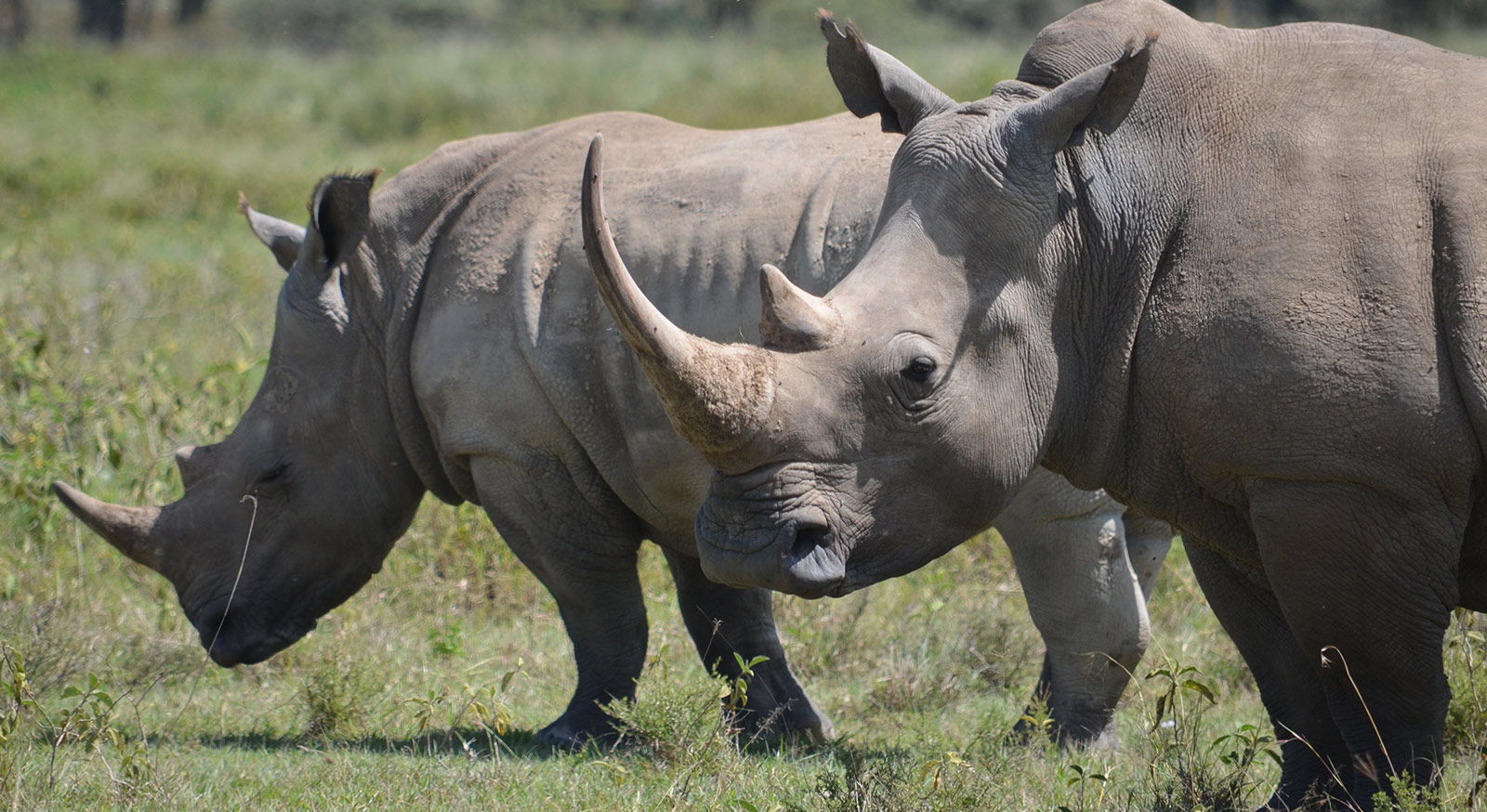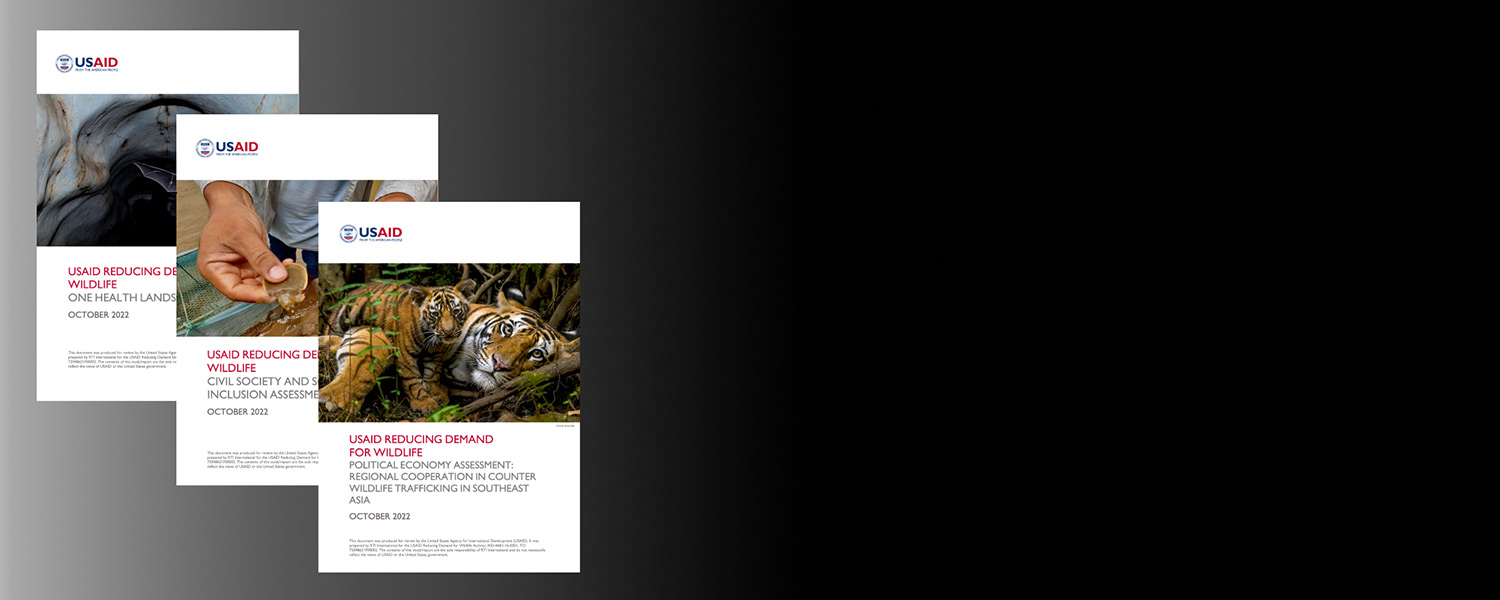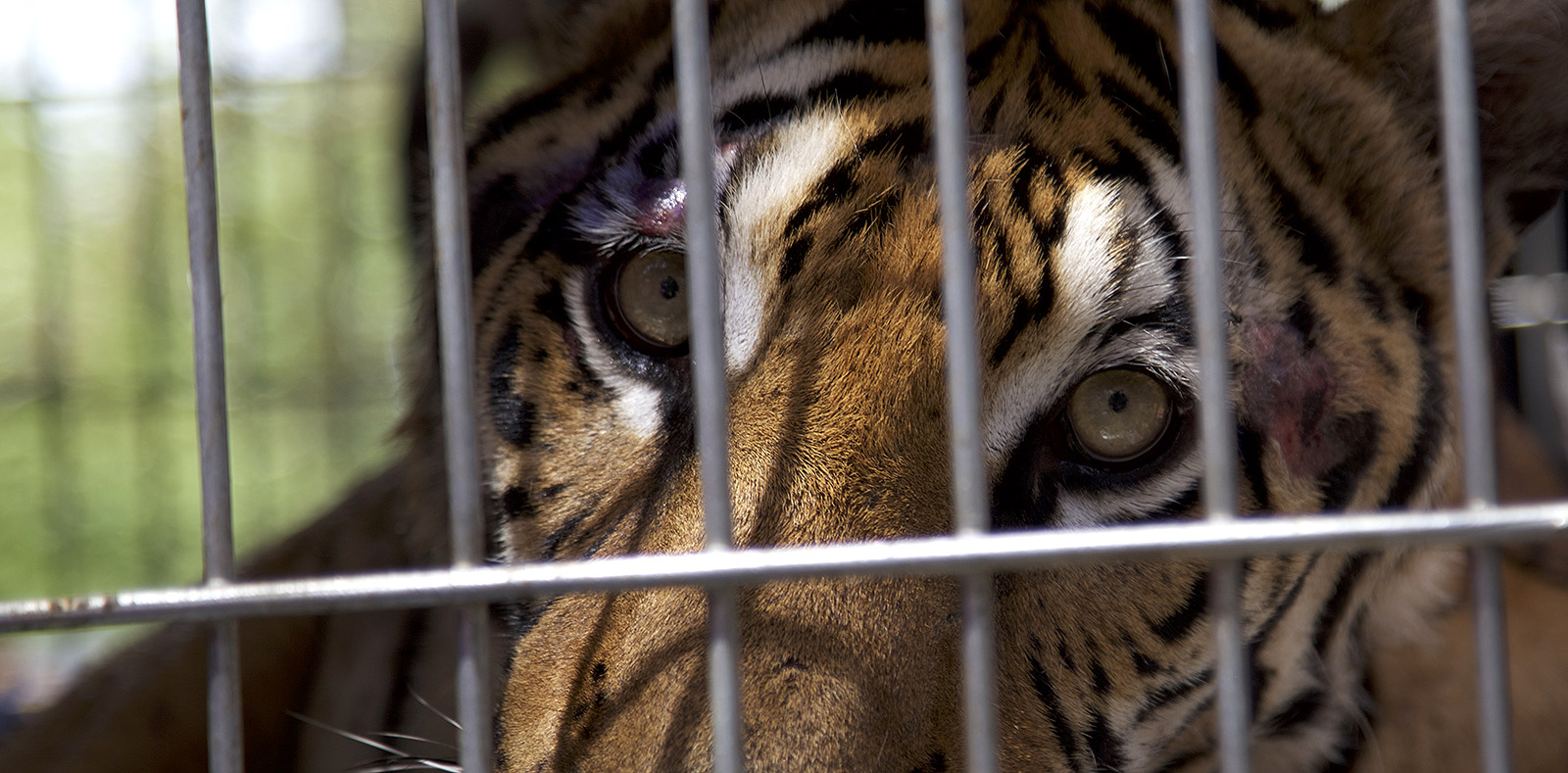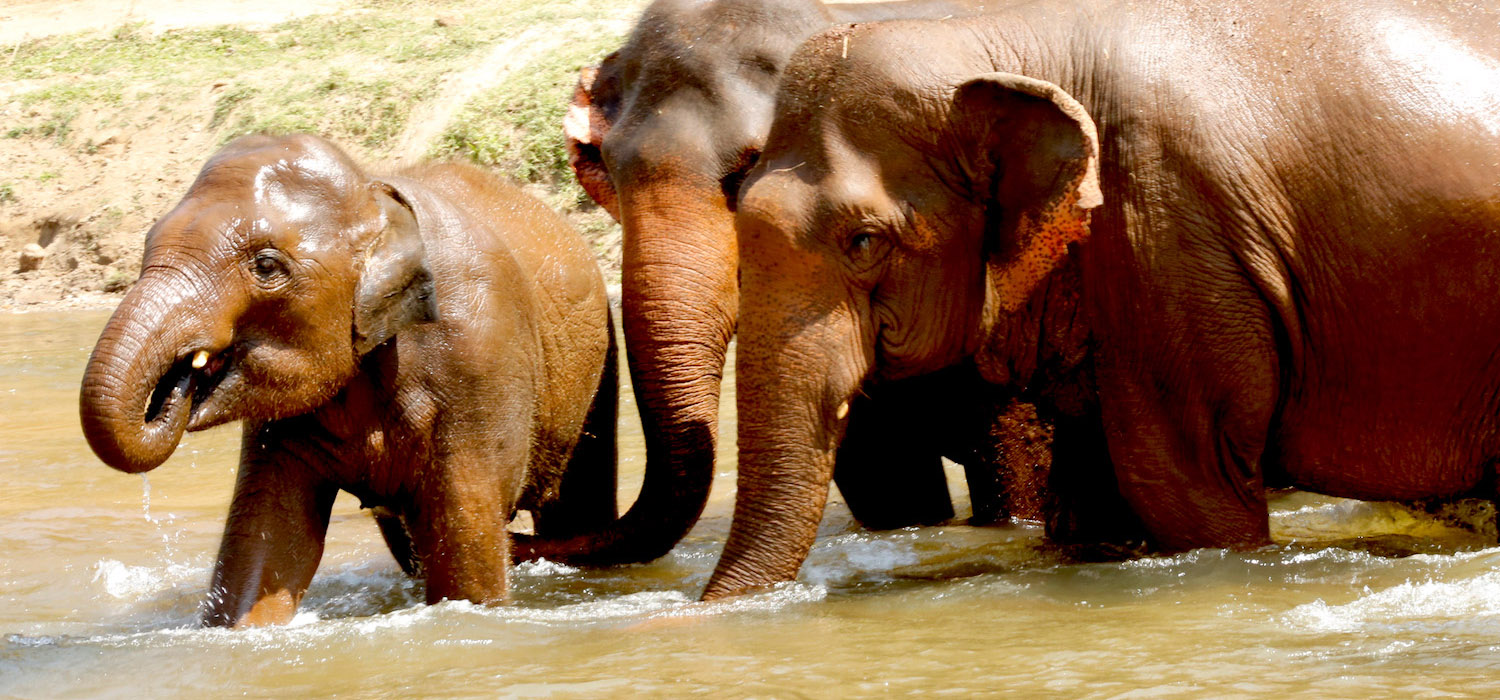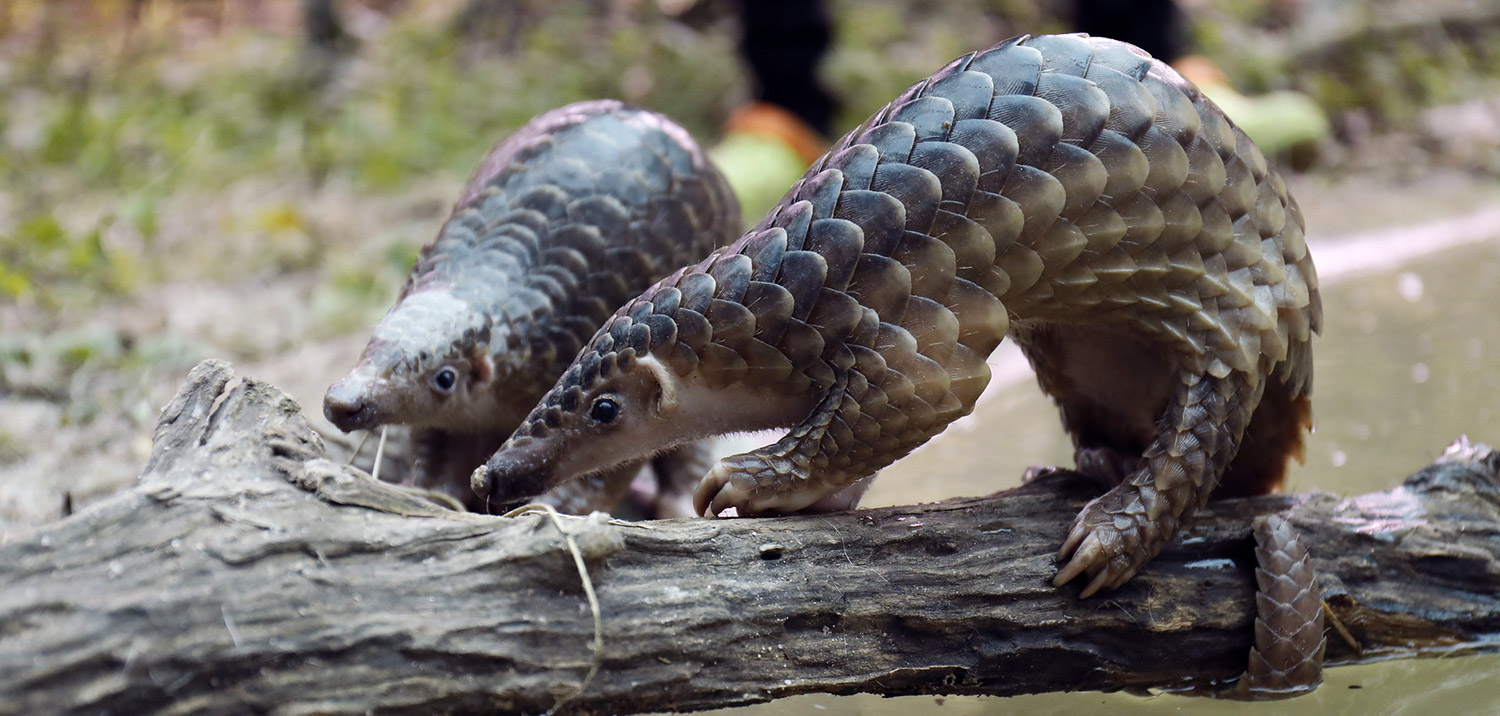USAID Wildlife Asia
Campaign Highlight Videos
Beyond raising public awareness, USAID Reducing Demand for Wildlife campaigns systematically used social and behavior change communication (SBCC) to reduce the demand for wildlife products in China, Thailand, and Vietnam.
Only Elephants Wear Ivory Best Campaign Video with Cindy Bishop
USAID, Thailand’s Department of National Parks, Wildlife and Plant Conservation (DNP) and WildAid launched the “Only Elephants Wear Ivory Best” campaign in September 2022 to reduce the use and purchase of jewelry and accessories made from elephant ivory among women.
News
-
Feb 23, 2023 · News ItemWildlife Conservationists Celebrate USAID’s Accomplishments in Reducing Demand for Wildlife Products in Southeast Asia
From reducing consumer demand for illegal wildlife products to advancing regional coordination, the United States Agency for International Development (USAID)’s Reducing Demand for Wildlife project helped Southeast Asia countries counter wildlife trafficking and better conserve their wildlife for future generations. -
Feb 03, 2023 · News ItemUSAID launches a campaign to challenge spiritual beliefs about wildlife products
Spiritual beliefs drive wildlife consumption in Thailand, which feeds demand for illegal products from across the region. -
Feb 02, 2023 · News ItemUSAID leads collective regional action to combat wildlife trafficking
With an increasing number of organizations working to counter wildlife trafficking (CWT) in Southeast Asia, there is a need for better coordination to prevent overlap and amplify impact. -
Dec 28, 2022 · News ItemUSAID shares findings from a review of nine highly effective campaigns that reduced demand for wildlife products in China, Thailand, and Vietnam
Best practices from social and behavior change communication (SBCC) campaigns to reduce demand for wildlife products need to be shared to expand knowledge and acceptance of this methodology. SBCC uses scientific data driven approaches and marketing principles to target consumers with tailored messages to influence attitudes and behaviors.
Tools
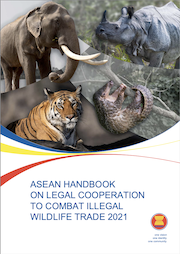 ASEAN Handbook on Legal Cooperation to Combat Illegal Wildlife Trade 2021
ASEAN Handbook on Legal Cooperation to Combat Illegal Wildlife Trade 2021
The ASEAN Handbook on Legal Cooperation to Combat Illegal Wildlife Trade 2021 provides key updates to the original version, which was first launched in 2016. It maps the legal framework and policies in the ASEAN region for combatting illegal wildlife trade.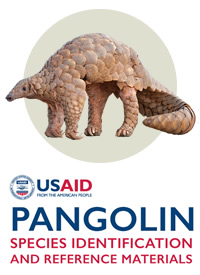 Pangolin Species Identification Guide:
Pangolin Species Identification Guide:
A Rapid Assessment Tool for Field and Desk:
This guide is designed to help you confidently identify the eight species of pangolin, and when possible, body parts and scales even when removed from the animal.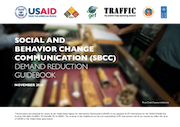 Social and Behavior Change Communication Demand Reduction Guidebook
Social and Behavior Change Communication Demand Reduction Guidebook
This Social and Behavior Change Communication (SBCC) Guidebook is intended for use by individuals and organizations in planning, implementing, and evaluating SBCC activities and campaigns to reduce consumer demand for illegal wildlife products or to promote desired conservation behaviors.
Resources
-
Feb 22, 2023 · FileWildlife Free Traveler Thailand Component Campaign Report
The Wildlife Free Traveler campaign in Thailand aimed to reduce purchases of ivory products among Chinese and other travelers visiting Thailand. -
Feb 22, 2023 · FileDigital Deterrence Campaign Report
The Digital Deterrence campaign used digital marketing techniques to prevent the purchase of illegal wildlife products online and reduce demand in Thailand. -
Feb 21, 2023 · FileNo Ivory No Tiger Amulets Campaign Report
The No Ivory No Tiger Amulets (NINT) campaign aimed to reduce demand for ivory and tiger products driven by spiritual beliefs that these products bring good luck and protect the user from harm.


